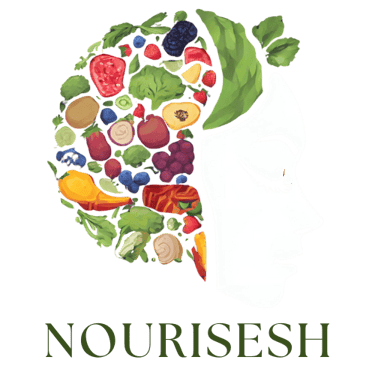
What Is ARFID? Understanding the Eating Disorder That’s Often Misunderstood
Struggling with food fear, extreme pickiness, or sensory-based eating? Learn what ARFID (Avoidant/Restrictive Food Intake Disorder) really is, how it impacts adults, and why therapy can help you reclaim your relationship with food.


Imagine sitting at the table and staring down at a plate of food, not with excitement or even indifference, but with dread. Maybe the texture makes your skin crawl, the smell turns your stomach, or just one bite feels like too much. You freeze, push the food around, or plan how to quietly make it disappear.
That’s what ARFID, Avoidant/Restrictive Food Intake Disorder, can feel like.
It’s not “just being picky.” It’s fear, discomfort, and overwhelm wrapped up in something most people don’t think twice about. So you stick to your handful of safe foods, the ones that feel predictable, manageable, and comforting. The same three to five meals, maybe for years. They’re your safety net. But over time, this narrow way of eating can take a toll, causing nutritional deficiencies, rising anxiety, social isolation, and a deep sense of shame.
You avoid restaurants. You dread dinner invitations. You eat before social events so you won’t have to explain. And if you’re a parent, you might carry the quiet guilt of asking yourself, How can I teach my kids to eat well when I can’t do it myself?
ARFID Isn’t About Dieting or Body Image
Unlike other eating disorders, ARFID isn’t driven by a desire to lose weight or change how you look. It’s rooted in something deeper, often fear, discomfort, or sensory sensitivity. For some, it may have started after a distressing experience with food. For others, it’s been part of their lives for as long as they can remember.
You might not be able to point to a specific moment it began. Maybe it was always there, quietly shaping your relationship with food. Over time, the routines and rules that help you feel safe can become exhausting. You may find yourself planning your entire day around food avoidance, carrying snacks everywhere, or skipping meals to avoid the stress of explaining your preferences to others.
That’s a heavy burden to carry, especially when no one seems to understand.
The Mental and Emotional Weight of ARFID
ARFID doesn’t just affect your nutrition. It can touch nearly every part of your life, including relationships, social outings, travel, and even your confidence. You might feel embarrassed to eat in front of others or worry about being judged. The pressure of mealtimes can feel overwhelming, turning what should be a moment of connection or nourishment into a source of anxiety and shame.
What makes it even harder is how invisible ARFID can be. On the outside, everything might look fine. You may even start to doubt yourself, wondering if you’re just being dramatic or difficult. But deep down, you know it’s more than that. You’re not making it up. And you’re not being too much.
You’ve been doing your best to cope in a world that doesn’t always make space for what you need.
You Deserve Support That Truly Fits
Therapy for ARFID isn’t about forcing you to eat foods you’re not ready for. It’s about working together, step by step, in a way that feels safe and respectful. A good therapist won’t rush you. Instead, they’ll help you explore what’s behind the anxiety, understand the patterns that keep you stuck, and gently introduce new possibilities when you’re ready.
You’ll learn practical tools to manage fear, reduce overwhelm, and expand your comfort zone. The process is collaborative and compassionate, centered on trust and real progress. Even small shifts can lead to big changes in how you feel around food and in your daily life.
There Is a Way Forward
If any of this feels familiar, please know there is nothing wrong with you. You’ve found ways to survive and feel safe, even if they no longer serve you. That’s something to honor, not judge.
ARFID doesn’t define who you are. And you don’t have to keep navigating it by yourself.
With the right support, you can build a more peaceful, empowered relationship with food—one that makes space for nourishment, connection, and a life that feels more open.


